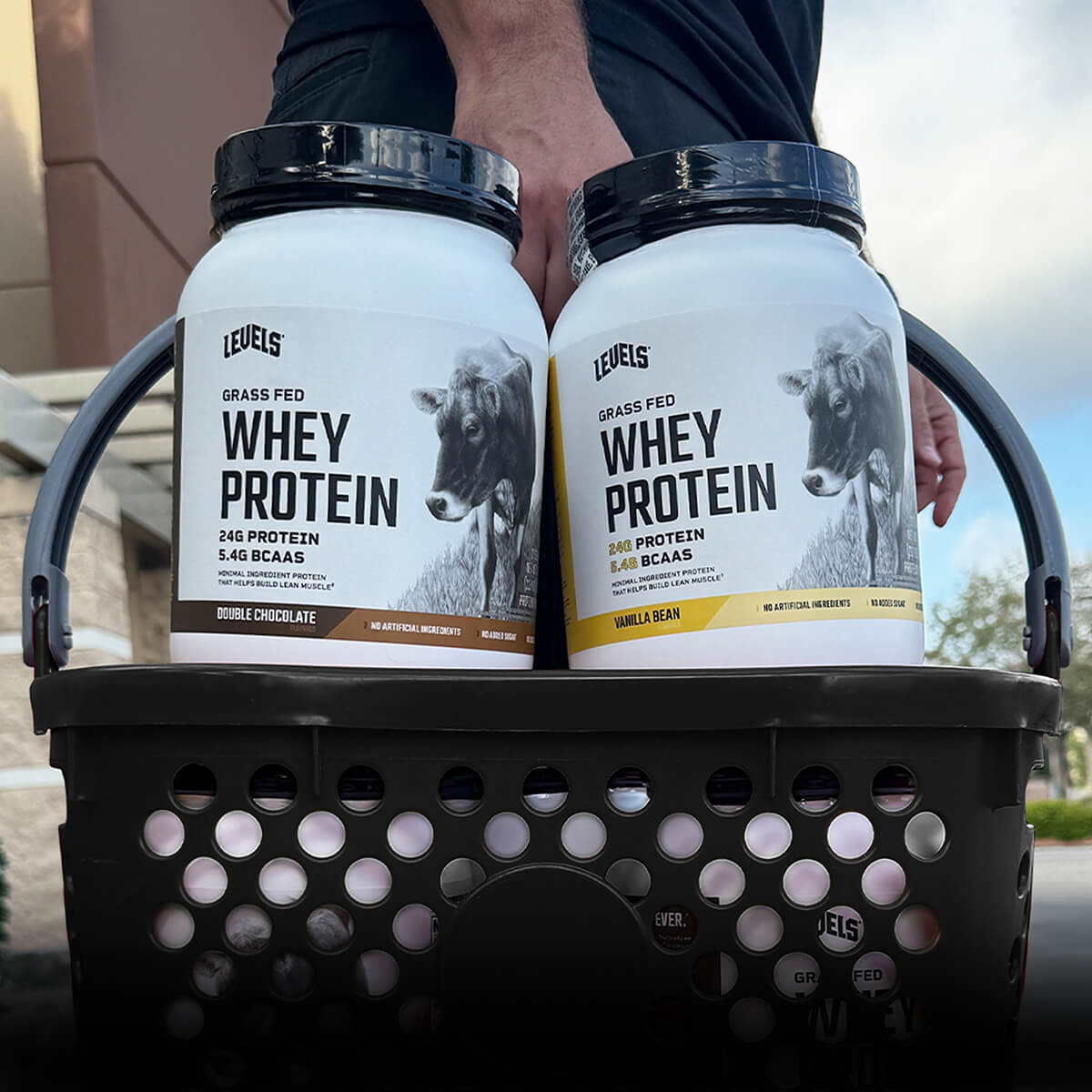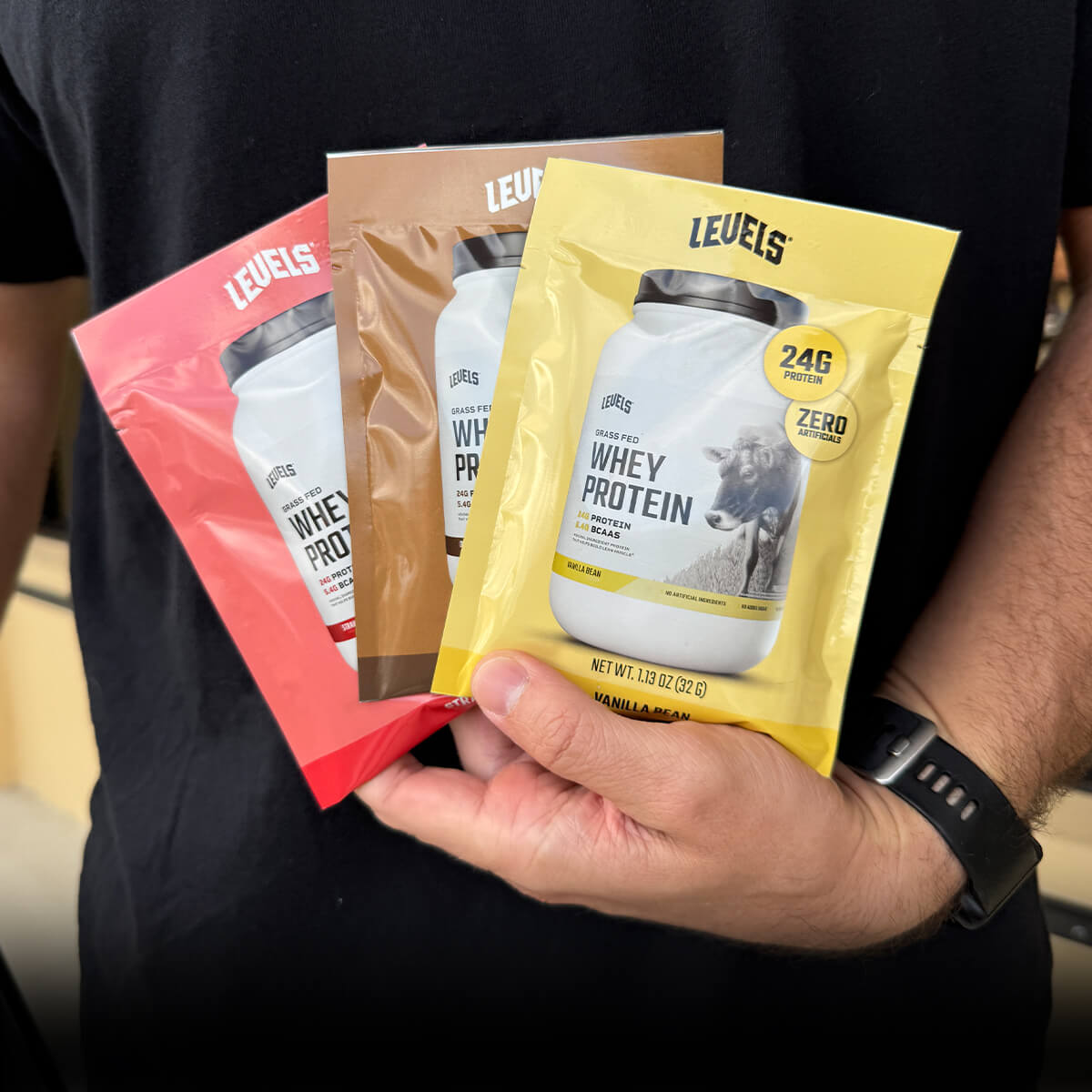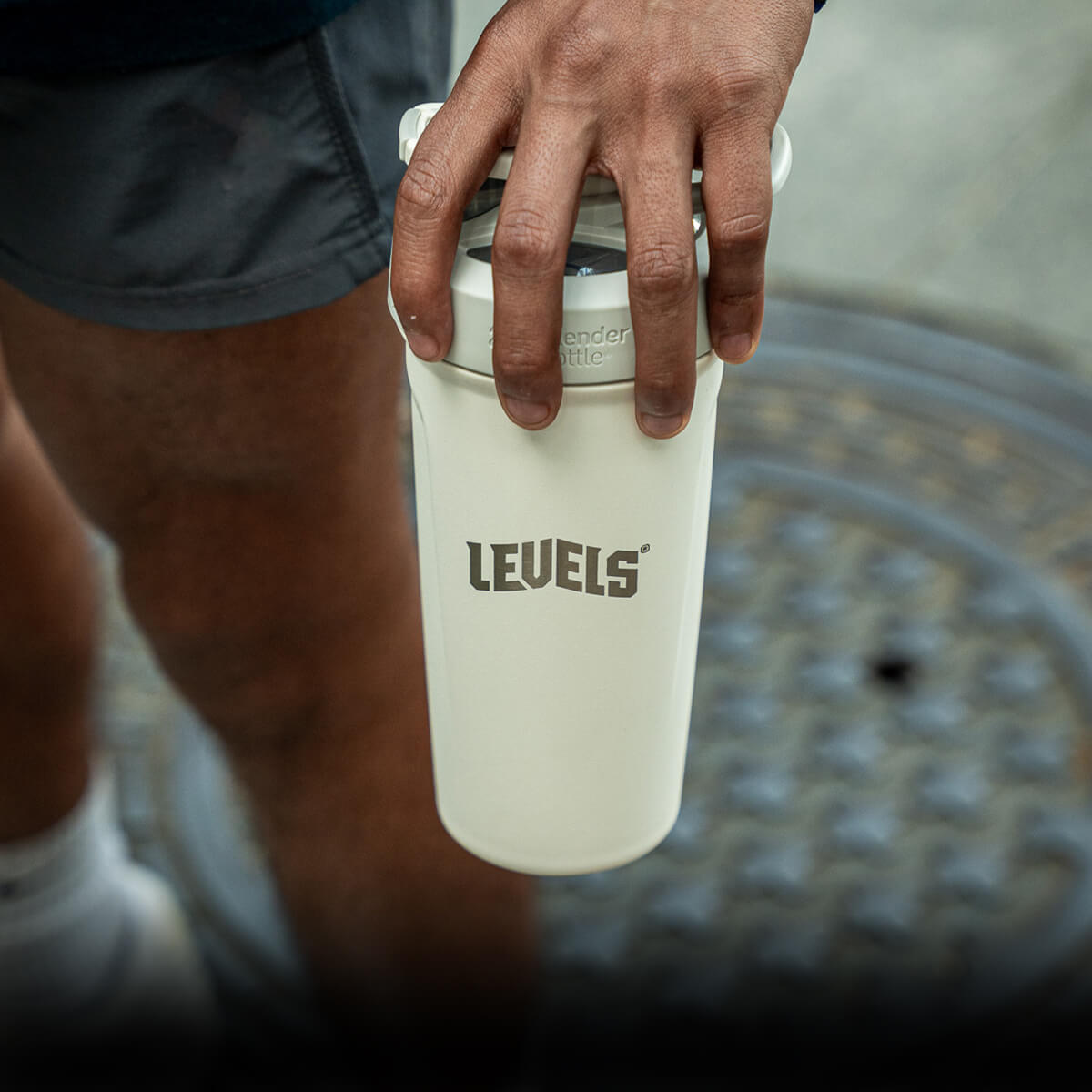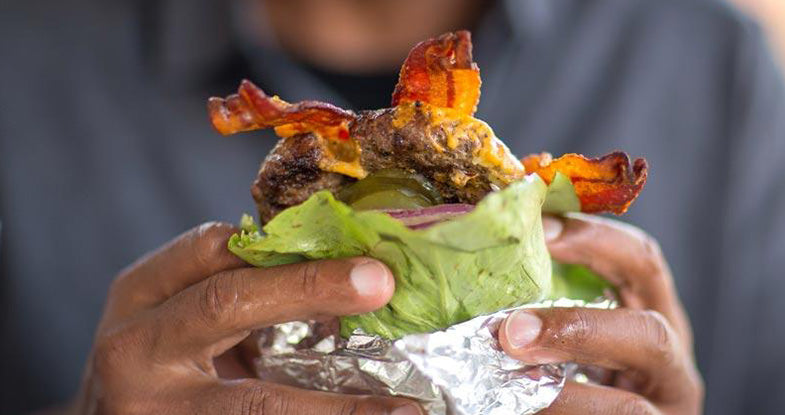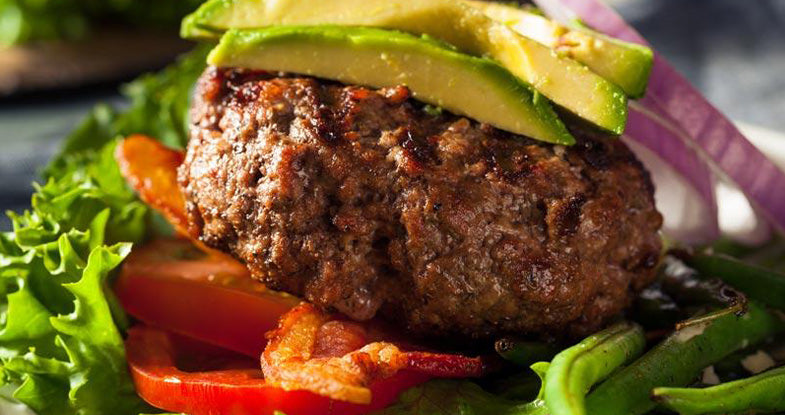After several months of low-carb dieting, you may notice that you’ve stopped losing weight on keto. Does this mean the keto diet isn’t right for you? Or perhaps something is wrong with your metabolism?
Not necessarily.
In fact, there are several reasons you could be hitting a weight loss plateau on keto. Read on to learn more.
What Is a Weight Loss Plateau?
When following a weight loss plan, adherence tends to start pretty strong and eventually trails off over time. This can happen whether you’re following a keto diet, low-fat diet, or any other weight loss regimen.

In the first few weeks, the initial weight loss that you notice, particularly on a low-carb diet, comes mostly from water. As your body burns away it’s stored carbohydrates (also known as glycogen), the water that’s stored along with the glycogen gets released as well.
On a ketogenic diet, this water loss is compounded by the fact that ketones also pull water out when they're excreted. After a few weeks, this won't be a problem because ketones will be used for fuel, not lost in your urine.
However, in the beginning phase of the diet, your body starts producing an abundance of ketones but isn’t able to process them all. Therefore, you end up excreting them along with water[*].
While seeing the numbers on the scale start to stall may feel like a letdown, this is actually quite normal and healthy in terms of long term weight loss.
However, around six months or so into a weight loss plan, many people hit something called a weight loss plateau. Unlike the initial slowing down of weight loss, a plateau marks a complete halt — the numbers on the scale don’t budge.
Weight loss plateaus can be frustrating and demoralizing. You’ve worked hard for months, and now you’re at a standstill.
But here’s the deal; weight loss plateaus are a natural part of the weight loss journey, and there’s plenty that can be done to overcome them.
How Weight Loss Works
Before we dial into the details of how to break through a weight-loss plateau, let’s do a quick review of how weight loss works.
These days you’ll hear a lot of health and wellness experts saying, “weight loss is not as simple as calories in and calories out.” While there is truth to the fact that it’s not as simple as that, weight loss ultimately does boil down to being in a calorie deficit.
Where things can get tricky with the calories in, calories out model is what actually happens with those calories you consume.
For instance, you could eat all your calories in the form of carbohydrates (which are relatively easy to digest), or eat the same number of calories from protein (which are harder to digest), and end up consuming a completely different net calorie count (i.e., the number of calories the meal contributes after taking in account the calories burned to digest that meal)[*][*].

Since protein requires more energy to digest, some of the calories it contributes to the meal are balanced out by the calories it takes to break it down. On the other hand, carbohydrates take much less energy to digest, so you end up with a higher net calorie count when digesting carbs.
Therefore, the calories in, calories out equation becomes a bit more nuanced.
With this in mind, it’s generally understood that to lose a pound of fat, you need to burn around 3500 calories. The problem is, weight loss and fat loss are not the same things. When you’re in a calorie deficit, your body starts pulling energy from your fat stores, but it also draws from your glucose stores and muscle as well[*].
Therefore, weight loss is often accompanied by water loss and muscle loss.
For most people, a healthy rate of weight loss is about one to two pounds per week. In terms of calories, that’s a 500 to 1000 calorie deficit a day[*].
Why You Plateau on Keto
Some research suggests that during calorie restriction, your metabolism may slow down to conserve energy — specifically when fat stores start becoming depleted. For many years, this was the traditional understanding as to why your weight loss plateaus[*].
More recent evidence, however, explains that weight loss plateaus are more likely to result from a lack of diet compliance over time than any metabolic changes. This is good news because it means that you have more control than you might have thought[*].
The truth is, there are several lifestyle and dietary factors that could be tripping you up and throwing you off track with your keto diet. Therefore, all it takes to get through a plateau is a little self-awareness and willingness to adjust.
Here are some of the most common factors that can halt weight loss on a keto diet:
1. You’re Eating Too Many Carbs
This may seem obvious, but eating too many carbohydrates isn’t just going to stall weight loss, it will keep you out of ketosis altogether.
Many people start their keto diet off strong but slowly allow carbs to sneak in. When you’re eating carbohydrates, it blocks your body's ability to create ketones in any appreciable amount. Since the point of eating low-carb for weight loss is to tap into your stored fat and burn ketones, eating too many carbs is in direct opposition to your goal[*].
2. You’re Eating Too Many Calories
As mentioned above, weight loss ultimately comes down to calories in-calories out. If you’re consuming more calories than you burn daily, your body will never dip into your fat stores –– end of story.
Extra calories can easily sneak in when following a keto meal plan due to the high-fat content of the diet. Fat contains nine calories per gram, where carbohydrates and protein only contain four. That means as you shift your diet to include more fat, your meals become more calorie dense[*].
Unless you’re in a calorie deficit, those fat stores won’t budge.
3. Sneaking in Processed Keto Foods
If you’ve been keeping your carbs on track but still find yourself experiencing a keto weight loss stall, it could be those processed keto snacks holding you back.
The problem with processed food is that it’s often devoid of the nutrients you would find in whole foods. Even the most keto-friendly bars and snacks may still contain artificial sweeteners and lack nutrients like fiber, both of which could cause increased cravings.
Research shows that when you consume processed foods, you tend to overeat, and consuming processed foods often results in weight gain[*].
4. Not Tracking Ketone Levels
The reason for a keto weight loss stall could be that you’re simply not in ketosis at all. When you began the keto diet you probably tracked your ketones pretty closely for a while. However, it’s very common that as people get used to this way of eating, they stop tracking and start operating on blind faith.
The famous quote, “what gets measured gets managed,” has never been more relevant than when it comes to tracking ketones. If you’re not in ketosis, then you’re likely not tapping into your fat stores as efficiently.
Other Factors to Keep in Mind for Weight Loss
5. Poor Sleep
Research shows that lack of sleep is one of the contributing factors to weight gain. While you may think that this has more to do with energy expenditure (when you’re tired, who wants to work out?), it actually has much more to do with diet compliance.
That bag of chips or candy bar that you would usually pass up in the name of health become irresistible when you’re sleep-deprived. One day of overeating won’t push you over the edge, but several nights of poor sleep could add up[*].
6. Thyroid Health
Several hormones play a role in weight loss, but the thyroid is one of the most common weight loss hormones that can go out of balance.
Your thyroid plays an essential role in the regulation of your metabolism, specifically controlling your basal metabolic rate (BMR).
Your BMR accounts for the number of calories that you burn while your body is at rest. When your thyroid is healthy, you burn more calories at rest, and when your thyroid is weak, you burn less. Therefore, keeping your thyroid healthy is crucial if you want to shed some pounds.
Some symptoms of low thyroid hormones include weight gain, hair loss, fatigue, cold hands and feet, foggy-headedness, and dry skin. If you’re concerned that you have low thyroid hormone, consult your doctor for testing[*].
7. Stress
The connection between stress and obesity is widely accepted and is likely due to an imbalance in the hormone cortisol.
Research shows that high levels of cortisol are strongly related to abdominal obesity and that stress can increase the risk for a range of health concerns like high blood pressure, heart disease, and cancer.
Some people are particularly susceptible to the effects of stress on their bodies and may be more likely than others to gain weight when under pressure[*][*].
The tricky thing with stress is that after a while, it can feel like a way of life. Many people walk around with low-grade chronic stress without even realizing it.
Managing stress with things like meditation, yoga, and journaling are all fantastic ways to combat excess cortisol[*][*][*].
Tips to Overcome a Weight Loss Stall on Keto
1. Watch Your Carbs
When starting your keto journey, you likely put a fair amount of attention on your carbohydrate intake. If you’ve found yourself stalled on keto, it may be time to get back to the basics and start tracking your carbs again.

It’s very common for people to get comfortable on a diet and let their carb intake slowly increase over time. Start with a beginner’s attitude and pay attention to the number of carbs you’re taking in. You may find that for a time you need to cut carbs even further than when you first started. This may be the trick to revving up that ketone production.
2. Track Your Ketones
This goes right along with the above. The best way to tell if you’ve been overdoing it on carbs is to track your ketone levels. If your ketones are still soaring, then you know excess carbs aren’t to blame for your weight loss plateau.
There are a few different ways to track your ketones, but the most accurate is using a blood ketone monitor. If you’re not a fan of pricking your finger (understandable), you can also use a breath ketone monitor or urine test strips.
3. Track Your Calories
If your ketones are within range and you’re still stalling out with weight loss, it could be that you’re merely consuming too many calories. While it may feel like a lot of work at first, tracking your calories for a short time can give incredible insight into how you’re eating.
Track your food intake for at least five days and assess if you’ve been sneaking in extra calories here and there. If your calories still seem within range, it may mean that you need to cut back on calories further for a little while to break through your plateau.
4. Recalculate Your Macros
If you’ve been following a keto diet for a while, it may be time to recalculate your macro needs. Things like weight loss and exercise can affect your macro ratio, so if you’ve dropped pounds or changed your workout regimen, give your macros a once over to make sure they’re still matching your physical needs.
It could be that you need to readjust carbs or protein to fit your new lifestyle or body composition.

5. Up Your Protein
Along with keeping your carbs low, getting enough protein in your diet is essential for weight loss. Protein has a high thermic effect, and it contributes to lean body mass (the tissue in your body that burns the most calories). Also, research shows that protein is the most satiating macronutrient.
Therefore, if your protein intake has slipped, you could experience more cravings and a reduction in lean body mass, which would affect your basal metabolic rate (BMR), meaning you burn fewer calories at rest[*].
6. Choose Whole Foods Over Processed
Grabbing a keto snack can sometimes feel like the most convenient option, and there’s nothing wrong with treating yourself to a little keto treat here and there.
But in general, when you’re short on time, try to keep keto-friendly snacks on hand like nuts and olives. And if you do decide to go for a bar or processed snack, make sure the ingredients are clean and don’t contain any artificial sweeteners.
Also, make sure that you’re getting in whole, real foods as much as possible. Sticking to your macros is essential for ketone production, but getting vitamins and minerals is crucial to the health of your body.
7. Up Your Exercise
If weight loss is a matter of calories in and calories out, then increasing the calories you burn may be the missing piece in your weight loss puzzle. If you’ve changed your workout routine or cut back on your movement, it could be that you simply aren’t burning the same amount of daily calories as you were before your plateau.
Many people start their weight loss journey with both diet and exercise goals in mind. As time goes on, however, diet isn’t the only aspect of the wellness routine that may start to slip.
Ask yourself, “Is my exercise routine as robust as it was when I started keto?” if your answer is no, it may be time to schedule in some more workouts.
8. Intermittent Fasting
Intermittent fasting (IF) is a technique that often goes hand in hand with a keto diet. You may use fasting as a way to increase your ketones by restricting incoming energy, or it could be a way to enhance something called autophagy in your body — the breakdown of old cells and cell parts.
Although more research needs to be done in humans, animal research suggests that IF can support a weight loss protocol. In fact, the benefits of IF like controlling inflammation and promoting a healthy gut microbiome may be enough to support your body’s weight loss pathways all their own[*][*].
Fat fasting, in particular, may be a simple solution for your weight loss plateau, as this type of fast doesn’t require a complete omission of food. Instead, you would restrict your calories to 1000 to 1,200 per day and consume 80-90% of your macros from fat. It should be noted, however, that this type of eating plan should only be followed for short periods — five days maximum.
Takeaway
If your weight loss is stalled on keto, it doesn’t necessarily mean that your body is working against you. Contrary to popular belief, it’s much more likely that your dietary adherence has just fallen off track a bit.
Take some time to reassess your diet; have you been overdoing it with the carbs? What about your calorie intake? Could you be getting in more protein?
If your diet looks like it’s on track, then move on to lifestyle; how is your stress? Sleep? Movement?
There's always a solution to a weight loss plateau if you know what direction to look in. But remember, above all else, that weight loss takes time, so patience is crucial in your weight loss journey.





